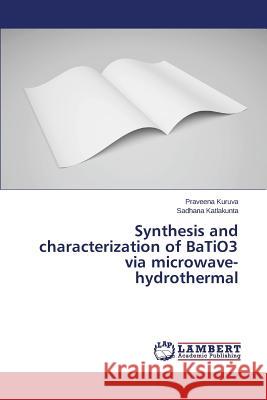Synthesis and characterization of BaTiO3 via microwave-hydrothermal » książka
Synthesis and characterization of BaTiO3 via microwave-hydrothermal
ISBN-13: 9783659608513 / Angielski / Miękka / 2014 / 80 str.
Barium titanate (BaTiO3) is widely used for electronic devices in the technological ceramic industry because of its ferroelectric, thermoelectric, and piezoelectric properties when it assumes the tetragonal structure. As such, it can be widely used in capacitors, positive temperature coefficient resistors, dynamic random access memories, electromechanics, and nonlinear optics. The synthesis of ultrafine BaTiO3 nanoparticles is theoretically and technologically important for device fabrication. Many novel synthesis techniques have been developed for this important material and discussed in detailed. Traditionally, BaTiO3 is prepared using a high-temperature (>1100 C) solid-state reaction which yields large crystal grains (>3 m) with a wide range of shape and size. Moreover, these powders result in less chemical homogeneity. In this book we have described briefly about wet chemistry methods and we have adopted the microwave hydrothermal method for the synthesis of BaTiO3.This book deals with effect of microwave sintering size on structural and piezoelctric properties of nanocrystalline BaTiO3."
Barium titanate (BaTiO3) is widely used for electronic devices in the technological ceramic industry because of its ferroelectric, thermoelectric, and piezoelectric properties when it assumes the tetragonal structure. As such, it can be widely used in capacitors, positive temperature coefficient resistors, dynamic random access memories, electromechanics, and nonlinear optics. The synthesis of ultrafine BaTiO3 nanoparticles is theoretically and technologically important for device fabrication. Many novel synthesis techniques have been developed for this important material and discussed in detailed. Traditionally, BaTiO3 is prepared using a high-temperature (>1100ºC) solid-state reaction which yields large crystal grains (>3 μm) with a wide range of shape and size. Moreover, these powders result in less chemical homogeneity. In this book we have described briefly about wet chemistry methods and we have adopted the microwave hydrothermal method for the synthesis of BaTiO3.This book deals with effect of microwave sintering size on structural and piezoelctric properties of nanocrystalline BaTiO3.











